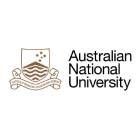Graduate Certificate of Crime, Risk and Resilience
Graduate Certificate of Crime, Risk and Resilience
The operational challenges for policing, justice, regulatory and security agencies across Australia, Asia and the Pacific, and globally, are increasing in our networked world. These challenges are exacerbated by the compounding effects of systemic crises, for example, the Covid-19 pandemic and climate change. These crises generate significant disruptions and uncertainties…
Categories
COURSE DESCRIPTION
The operational challenges for policing, justice, regulatory and security agencies across Australia, Asia and the Pacific, and globally, are increasing in our networked world. These challenges are exacerbated by the compounding effects of systemic crises, for example, the Covid-19 pandemic and climate change. These crises generate significant disruptions and uncertainties which stretch the capabilities of traditional governing actors and institutions. They also give rise to novel governance landscapes and arrangements, which traditional justice and security actors must navigate and adapt to as part of coordinated and collaborative responses to systemic risks and harms.
Combatting harmful and illicit activities in the face of disruptions, crises, and poly-crises necessitates innovative and holistic strategies for conceptualising and addressing crime, risk and resilience. Enhancing the resilience of established crime control and policing institutions and security governance networks in-turn requires a new generation of working professionals and recent graduates with: a rich understanding of established crime control concepts, processes, models and practices; expert knowledge of the core regulatory principles and practices; and the ability to recognise and adapt to opportunities and risks across domains, using recent advances in systems-level thinking. The Graduate Certificate in Crime, Risk & Resilience has been developed with this cohort in mind.
Taught by experts based at the world-renowned School of Regulation and Global Governance (RegNet), the Graduate Certificate of Crime, Risk & Resilience is a rich interdisciplinary training experience. The curriculum has been developed to ensure that graduates develop knowledge and skills which will enable them to gain professional recognition as change agents and thought leaders across multiple sectors and domains that are working to prevent and reduce criminal harms in the face of growing complexity.
Employment Opportunities
Graduates from ANU have been rated as Australia’s most employable graduates and are among the most sought after worldwide. This program is designed for professionals who are engaged in governing criminal threats, or who are designing, implementing or enforcing regulatory systems within Australia, Asia or the Pacific, as well as those seeking to enter the field of professional regulation.
Career Options
ANU ranks among the world’s very finest universities. Our nearly 100,000 alumni include political, business, government, and academic leaders around the world.
We have graduated remarkable people from every part of our continent, our region and all walks of life.
Learning Outcomes
- Analyse and evaluate current debates and thinking at the intersection of crime, risk and resilience.
- Reflect on these debates in relation to the practical challenges of regulating illegal activity in Australia, Asia and the Pacific, transnationally and globally.
- Design and apply regulatory governance frameworks for analysing and addressing the systemic effects of complex risks and crises in the criminological domain.
- Develop and communicate innovative recommendations for mitigating risk and enhancing resilience to traditional and non-traditional criminological problems, and strategies for effectively communicating these to external audiences.
REQUIREMENTS
A Bachelor degree or international equivalent with a minimum GPA of 4/7.
Applicants who do not hold a bachelor degree or an international equivalent with a minimum GPA of 4/7 may apply to admission based on:
a) Graduate Diploma or international equivalent with a GPA 4/7; or
b) Graduate Certificate or international equivalent with a GPA 4/7; or
c) 24 units of courses in a postgraduate program a GPA of 4/7; or
d) Graduate Records Examination (GRE) General test, completed no more than 5 years before the time of application, with a minimum score of 155 for Verbal Reasoning, 155 for Quantitative Reasoning and 4.0 in Analytical Writing and a minimum of 3 years full-time equivalent work experience at ANZSCO Skill Level 1 in a field related to the program; or
e) A minimum 5 years full-time equivalent work experience at ANZSCO Skill Level 1 in a field related to the program.
Academic achievement & English language proficiency
The minimum academic requirement for full entry and enrolment is a Bachelor degree or international equivalent with a minimum GPA of 4.0/7.0.
English Language Requirements
IELTS Academic and IELTS UKVI Academic [excluding One Skill Retake and IELTS Online] – Overall score of 6.5 overall with minimum 6.0 in each band.
TOEFL iBT Paper Edition and TOEFL iBT [excluding Paper Edition and Home Edition] – Overall score of 80 (Reading – 20; Writing – 20; Listening – 18; Speaking – 18).
Cambridge C1 Advanced – Overall score of 176 minimum 169 in each band.
PTE Academic and PTE Academic UKVI [excluding PTE Academic Online] – Overall score of 64 minimum 55 in each band.
EDUCATIONAL INSTITUTION
The Australian National University (ANU) is a public research university and member of the Group of Eight, located in Canberra, the capital of Australia. Its main campus in Acton encompasses seven teaching and research colleges, in addition to several national academies and institutes.

